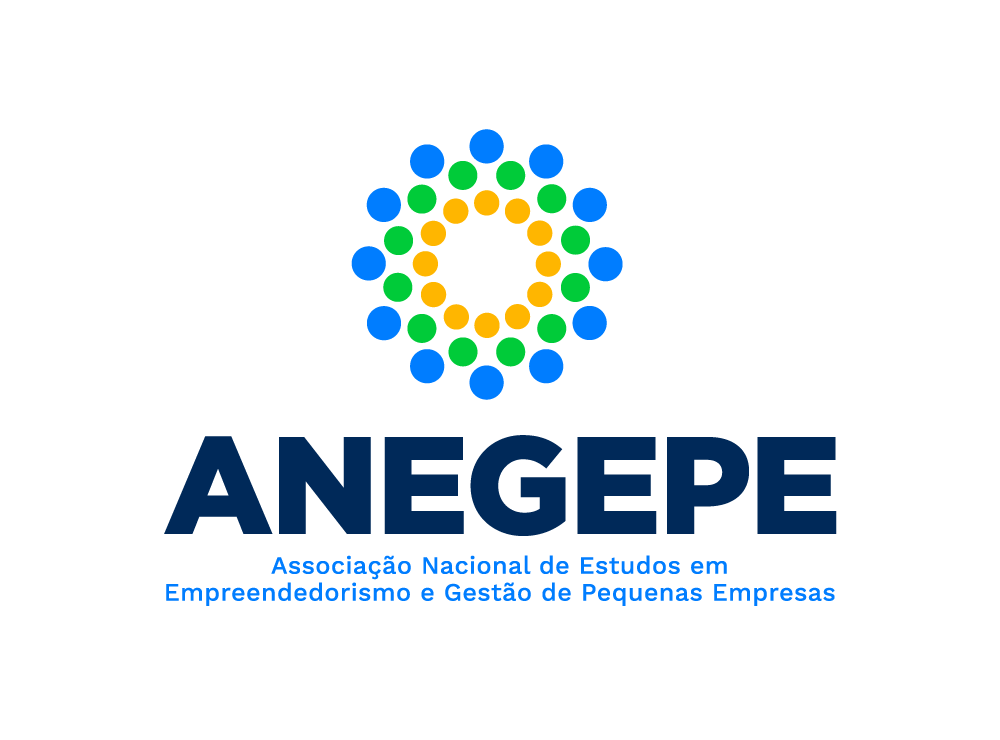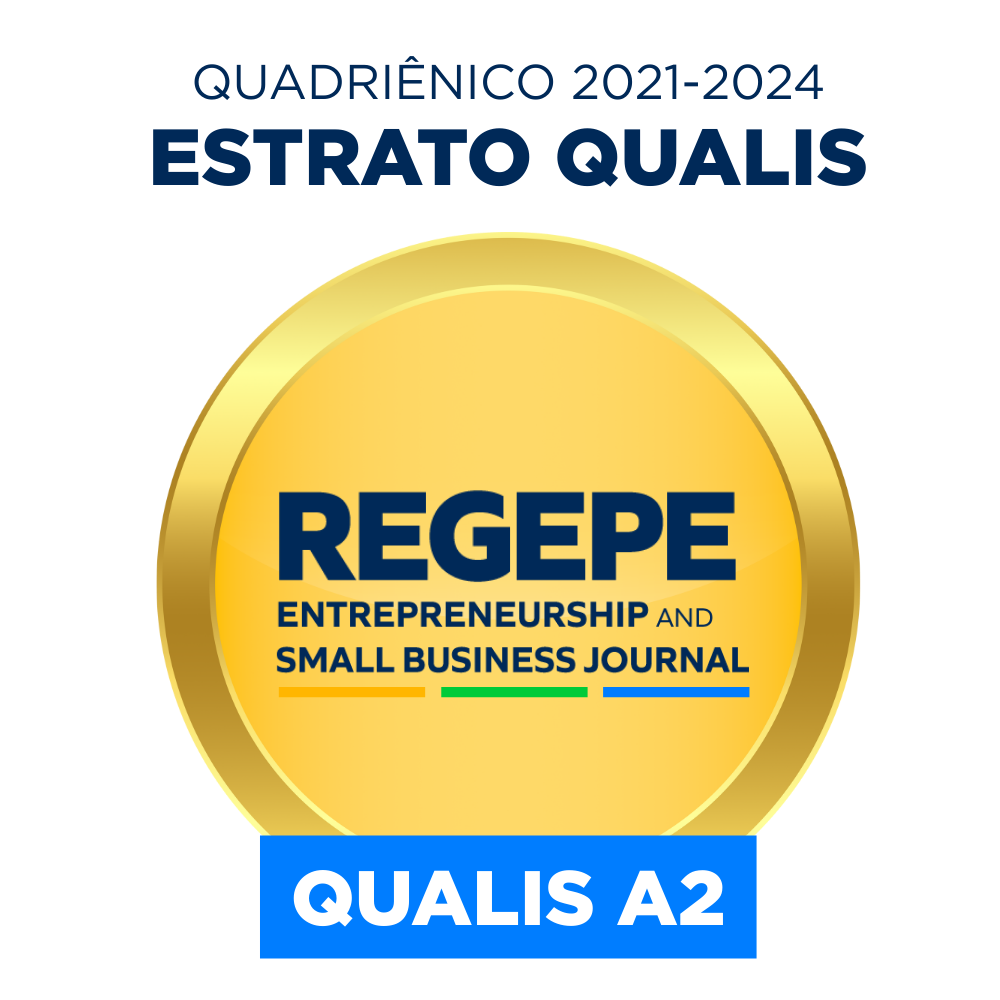Experiência Empreendedora no Brasil e nos EUA: Aspectos Culturais e Financeiros sob o Ponto de vista de Empreendedores Brasileiros
DOI:
10.14211/regepe.v9i3.1403Palabras clave:
Empreendedorismo, Experiência empreendedora, Cultura, Acesso a CapitalResumen
Objetivo do estudo: comparar a experiência empreendedora no Brasil (nas regiões sul e sudeste do país) e nos Estados Unidos (na região do sul da Flórida), sob o ponto de vista de empreendedores brasileiros e, especificamente, em relação aos determinantes “cultura” e “acesso a capital”.
Metodologia: estudo qualitativo exploratório, por meio de entrevistas com empreendedores brasileiros com experiência na abertura de empresas tanto no Brasil quanto nos EUA.
Principais resultados: embora a situação econômica e a imagem do empreendedor perante a sociedade americana favoreçam o empreendedorismo, há o medo do fracasso em ambos os países. Além disso, a ideia de que a obtenção de crédito é abundante e fácil nos EUA não foi verificada nas entrevistas. Por fim, ao mesmo tempo em que os empreendedores entrevistados admiram as regras americanas e criticam a burocracia brasileira, eles também sentem falta da flexibilização existente no Brasil.
Contribuições teóricas/metodológicas: este estudo possibilita pesquisas que comparem o mercado de capital de risco dos dois países, assim como outros determinantes componentes do ecossistema empreendedor.
Originalidade/relevância: este estudo é relevante porque examina as diferenças entre a experiência empreendedora no Brasil e nos EUA, por meio de relatos de empreendedores brasileiros.
Contribuições sociais/para a gestão: por meio das experiências relatadas, foi possível compreender como as diferenças entre os dois países comparados podem modificar o ambiente empreendedor, no que diz respeito, especialmente, a aspectos culturais e financeiros.
Descargas
Citas
Agência Brasileira de Desenvolvimento Industrial. (2011). A Indústria de private equity e venture capital: segundo censo brasileiro. São Paulo.
Ahmad, N. & Hoffman, A. (2008). A framework for addressing and measuring entrepreneurship, OECD Statistics Working Paper, No° 2008/02. Recuperado em 19 outubro, 2018, de http://dx.doi.org/10.1787/243160627270 DOI: https://doi.org/10.1787/243160627270
Almeida, F. de, Valadares, J., & Sediyama, G. (2017). A Contribuição do Empreendedorismo para o Crescimento Econômico dos Estados Brasileiros. REGEPE - Revista de Empreendedorismo e Gestão de Pequenas Empresas, 6(3), 466-494. Recuperado em 18 outubro, 2018, de https://doi.org/10.14211/regepe.v6i3.552 DOI: https://doi.org/10.14211/regepe.v6i3.552
Aspen Network of Development Entrepreneurs. (2013). Entrepreneurial Ecosystem Diagnostic Toolkit. Recuperado em 19 outubro, 2018, de https://assets.aspeninstitute.org/content/uploads/files/content/docs/pubs/FINAL%20Ecosystem%20Toolkit%20Draft_print%20version.pdf
Bardin, L. (2010). Análise de conteúdo. São Paulo: Edições 70.
Belk, R., Fischer, E., & Kozinets, R. (2013). Qualitative consumer & marketing research. Los Angeles: SAGE.
Bosma, N., Acs, Z. J., Autio, E., Coduras, A. & Levie, J. (2009), Global Entrepreneurship Monitor, 2008 Executive Report. Babson Park, MA, USA: Babson College, Santiago, Chile: Universidad del Desarollo. UK: Global Entrepreneurship Research Association.
Confederação Nacional da Indústria & Great Britain. (2015). Os Mercados Brasileiro e Britânico de Financiamento Para Pequenas e Médias Empresas: Principais alternativas de cada país e os desafios para o desenvolvimento do mercado brasileiro. Brasília.
Coviello, N., & Yli-Renko, H. (2016). Handbook of Measures for International Entrepreneurship Research: Multi-Item Scales Crossing Disciplines and Contexts. Cheltenham: Edward Elgar Publishing. DOI: https://doi.org/10.4337/9781784711405
Danjou, I. (2002). L’entrepreneuriat: un champ fertile à la recherche de son unité. Revue Française de Gestion, 28(138), 109-125.
Duarte, J., & Barros, A. (2006). Métodos e técnicas de pesquisa em comunicação (2nd ed.). São Paulo: Atlas.
Endeavor Brasil. (2017). Índice de Cidades Empreendedoras Brasil 2017. Recuperado em 19 outubro, 2018, de https://info.endeavor.org.br/ice2017
Endeavor Brasil & Instituto Brasileiro de Geografia e Estatística. (2011). Estatísticas de empreendedorismo. Recuperado em 19 outubro, 2018, de ftp://ftp.ibge.gov.br/Estatisticas_de_Empreendedorismo/2011/empreendedorismo2011.pdf
Endeavor Brasil & META. (2015). Cultura Empreendedora no Brasil: o potencial para empreender com Alto Impacto. Recuperado em 19 outubro, 2018, de https://info.endeavor.org.br/culturaempreendedoranobrasil
Global Entrepreneurship Monitor. (2017a). United States Report 2016. Babson, MA, EUA: Babson College.
Global Entrepreneurship Monitor. (2017b). Empreendedorismo no Brasil 2016. IBPQ, Curitiba.
Henrekson, M., Johansson, D. (2008). Competencies and Institutions Fostering High-Growth Firms. Foundations Trends in Entrepreneurship, 5 (1), 1-80. DOI: https://doi.org/10.1561/0300000026
Hofstede, G. (1991). Cultures and organizations: Software of the mind. London: McGraw-Hill.
Isenberg, D. (2011). The Entrepreneurship Ecosystem Strategy as a New Paradigm for Economic Policy: Principles for Cultivating Entrepreneurship. The Babson Entrepreneurship Ecosystem Project. Babson College, Massachusetts. Recuperado em 18 outubro, 2018, de http://entrepreneurial-revolution.com/2011/05/11/the-entrepreneurship-ecosystem-strategy-as-a-new-paradigm-for-economic-policy-principles-for-cultivating-entrepreneurship/
KPMG & Associação Brasileira de Private Equity & Venture Capital. (2016). Consolidação de Dados Indústria de Private Equity e Venture Capital no Brasil. Recuperado em 19 outubro, 2018, de https://www.abvcap.com.br/Download/Estudos/3899.pdf
Krueger, Jr., N., & Brazeal, D. (2018). Potencial Empreendedor e Empreendedores em Potencial. REGEPE - Revista de Empreendedorismo e Gestão de Pequenas Empresas, 7(2), 201-226. Recuperado em 22 outubro, 2018, de https://doi.org/10.14211/regepe.v7i2.1071 DOI: https://doi.org/10.14211/regepe.v7i2.1071
Ramalho, C., Furtado, C. V. (Org.) & Lara, R. (Org.). (2011). Introdução ao Private Equity e Venture Capital para Empreendedores. São Paulo, FGV. Recuperado em 22 outubro, 2018, de http://bibliotecadigital.fgv.br/dspace/handle/10438/8421
Sarfati, Gilberto. (2013). Estágios de desenvolvimento econômico e políticas públicas de empreendedorismo e de micro, pequenas e médias empresas (MPMEs) em perspectiva comparada: os casos do Brasil, do Canadá, do Chile, da Irlanda e da Itália [Versão Eletrônica], Revista de Administração Pública, 47(1), 25-48. DOI: https://doi.org/10.1590/S0034-76122013000100002
Schumpeter, J.A. (1949). The Theory of Economic Development: An Inquiry into Profits, Capital, Credit, Interest and the Business Cycle. Pennsylvania State University: Harvard University.
U.S. News & World Report. (2017). Best Countries 2017 Global rankings, international news and data insights. Recuperado em 19 outubro, 2018, de https://www.usnews.com/news/best-countries/entrepreneurship
Descargas
Publicado
Métricas
Visualizações do artigo: 1846 PDF (Português (Brasil)) downloads: 476 PDF (English) downloads: 514
Cómo citar
Número
Sección
Licencia
Los autores que publican en esta revista están de acuerdo con los siguientes términos:
-
El/La autor(a)/es(as) autorizan la publicación del texto en la revista;
-
La revista no se responsabiliza de las opiniones, ideas y conceptos emitidos en los textos, ya que son de entera responsabilidad de sus autores/autoras;
-
Los autores/autoras mantienen los derechos de autor y conceden a la revista el derecho de la primera publicación, con el trabajo publicado bajo la Licencia CC BY 4.0
, que permite el compartir el trabajo con reconocimiento de la autoría y la publicación inicial en esta revista;
-
Los autores/autoras están permitidos y animados a publicar su trabajo (Versión enviada, Versión aceptada [Manuscrito aceptado por el autor/autora] o Versión publicada [Versión del registro]) en línea, por ejemplo, en repositorios institucionales o preprints, ya que puede llevar a intercambios productivos, así como a citas anteriores y mayores de trabajos publicados. REGEPE pide como condición política para los autores/autoras que indiquen/vinculen el artículo publicado con DOI. Vea el Efecto del Acceso Abierto.
















